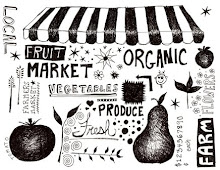 As someone who is passionate about organics, I am naturally (pardon the pun) strongly opposed to the use of genetically modified foods (GM). So I have been making significant attempts to remove them from my fridge, pantry, and garden (yep, they can be found there too). But, rather unexpectedly, I am having a LOT of trouble doing so. Why? Because there are thousands of products already in our supermarkets which contain GM foods, and they are NOT labelled GM!
As someone who is passionate about organics, I am naturally (pardon the pun) strongly opposed to the use of genetically modified foods (GM). So I have been making significant attempts to remove them from my fridge, pantry, and garden (yep, they can be found there too). But, rather unexpectedly, I am having a LOT of trouble doing so. Why? Because there are thousands of products already in our supermarkets which contain GM foods, and they are NOT labelled GM!This came as a shock. In Australia, our labelling laws are rather lax when it comes to GM. If a product has, for example, included GM canola oil in it's contents, it is not required by Australian law to be labelled as GM. The reason? Our regulatory authority, Food Standards Australia New Zealand (FSANZ), deems that once a food has been refined to a certain level (e.g. reduced to merely oil) then the GM-ness of the food is no longer an issue, and no labelling of it as GM is required.
This has made it virtually impossible to avoid GM foods altogether unless you avoid all processed food, or reject any processed foods which have not been cleared by Gene Ethics or GreenPeace as being GM free. (Bob Phelps, from Gene Ethics is pictured left.)
You would assume that an authority like FSANZ, which has "our best interests at heart", would have a swathe of convincing research evidence on which to make this decision about labelling. You may be surprised to learn that in fact their ruling about when the GM-ness of a food is no longer significant is a purely subjective one, with little science to support it. There is absolutely no evidence to suggest that a more refined version of a food negates any possible effects associated with GM.
The labelling decision also directly flies in the face of mounting evidence which clearly points in the other direction - that even highly processed GM foods can have a detrimental effect on our health. (For more info on that, see Gene Ethics.)
This is scary stuff, because in the USA - where GM has been around now for a couple of decades - it is estimated that more than 80% of their processed foods contain GM ingredients. Australia appears to be heading in the same direction. We are consuming significant amounts of GM food, without even knowing it.
While GM advocates claim that, after many years of GM in the food supply there are no widespread negative health effects, such claims are impossible to test. Population rates of cancer, obesity, diabetes, heart disease and other major health problems are on the rise every year. If any of these issues are in any way contributed to by the consumption of GM food, it would be completely hidden and impossible to prove.
But if GM is really so potentially detrimental to our health, why would it even be approved and on our shelves in the first place? The answer may shock you. In order for a GM food to be accepted by FSANZ (or by the FDA in the USA) the company who creates the GM food simply needs to provide it's own research demonstrating safety. That's right, the GM company itself does it's own research, with it's own scientists, and then tells FSANZ everything is a-okay. FSANZ (and the FDA) do NONE OF THEIR OWN INDEPENDENT TESTING TO DETERMINE IF THE RESEARCH IS ACCURATE.
When independent researchers have looked at GM foods, their results contradict those of the GM companies. And the countless testimonies of farmers and communities around the world, who are living daily with GM agriculture, should be enough to raise the alarm.
Some of those documented testimonies about GM's effects on human and animal health include:
2001 - Twelve cows die mysteriously after being given GM corn in their feed
2003 - 100 people residing next door to a new GM cornfield become seriously ill
2005 - More than 250 agricultural labourers in six separate towns, became seriously ill after working in a GM cotton field
2006 - 25% of sheep stocks who grazed on GM cotton plants died from a toxic reaction
For an excellent summary of the potential health threats posed by GM, and the frightening lack of regulation of the entire industry, check out this global research paper. Or read more at Gene Ethics. I've also picked up an excellent book, which I would highly recommend if you want to research things even further, called Genetic Roulette: The Documented Health Risks of Genetically Engineered Foods by Jeffrey M. Smith. It's a couple of years old now, so doesn't include the very latest research, but does a wonderful effort in summarising the research findings from around the world examining GM and it's effect on our health.
When it comes to avoiding GM it's important to know that, in Australia at least, you can't trust the label. Unless, that is, the label says that the product is certified organic. When food is certified organic, it has been carefully scrutinized from start to finish and decreed to be free from any GM input.
This is possibly one of the most fundamental reasons yet for continuing to make the organic choice, every day. And it's certainly not one that I had anticipated!





